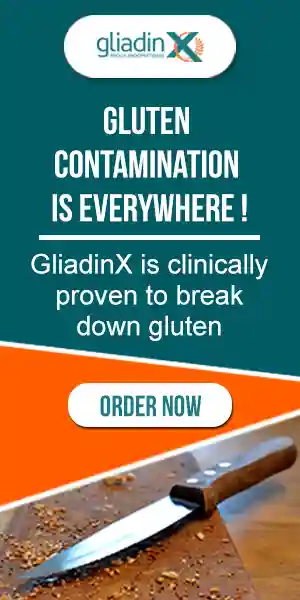-
Welcome to Celiac.com!
You have found your celiac tribe! Join us and ask questions in our forum, share your story, and connect with others.
-
Get Celiac.com Updates:Support Our Content
How many people here are aware that there are 9 types of gluten that Celiacs should be aware of?
-
Get Celiac.com Updates:Support Celiac.com:
-
Recent Activity
-
- CarolTN replied to CarolTN's topic in Dermatitis Herpetiformis5
Does anyone else have seborrheic dermatitis
Thank you to Trents, Scott, Christina and Bohanley for your replies! I have been gluten-free for about 13 years and mostly dairy-free during that time. I haven't been diagnosed as Celiac. When I did the test I hadn't eaten gluten for two years and the nurse told me the test wouldn't be accurate. Anyway, once in a blue moon I'll get tempted and... -
- ZandZsmom replied to dovahgolzseyol's topic in Gluten-Free Foods, Products, Shopping & Medications5
-
- dixonpete commented on dixonpete's blog entry in Pete Dixon2
-
- trents replied to jlp1999's topic in Celiac Disease Pre-Diagnosis, Testing & Symptoms5
Awaiting diagnosis
I would ask for a total IGA test (aka, Immunoglobulin A (IgA) and other names as well) to check for IGA deficiency. That test should always be ordered along with the TTG IGA. If someone is IGA deficient, their individual celiac IGA test scores will be artificially low which can result in false negatives. Make sure you are eating generous amounts of gluten...
-











Recommended Posts
Create an account or sign in to comment
You need to be a member in order to leave a comment
Create an account
Sign up for a new account in our community. It's easy!
Register a new accountSign in
Already have an account? Sign in here.
Sign In Now